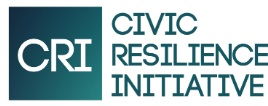The workshop was organized in collaboration with the Taiwanese Representative Office in Lithuania, the U.S. Embassy in Vilnius, and the Lithuanian Ministry of Foreign Affairs. Attendees included Lithuanian government officials from various ministries and parliament, representatives from think tanks, NGOs, and media outlets, as well as members of the diplomatic corps stationed in Lithuania.
During the event, several speakers delivered remarks, sharing their insights and expertise.
U.S. Ambassador Kara McDonald emphasized the critical need to counter disinformation to protect our democratic institutions. She praised the resilience of Lithuania and Taiwan and their dedication to democratic values. Highlighting the importance of international cooperation, she called for strong partnerships to safeguard democracy and counter malign actors as we build a future where truth and democracy prevail.
Lithuanian Vice Foreign Minister Egidijus Meilūnas emphasized that ‘contrary to popular misconceptions, disinformation has nothing to do with freedom of speech. In fact, blatant lies undermine freedom of speech and harm our societies. The democratic world must take decisive action at both national and international levels.’
Taiwan’s Representative to Lithuania, Constance Wang, highlighted the significance of 2024, a year when over 60 countries will hold elections. She emphasized Taiwan’s role at the forefront of countering authoritarianism and disinformation, and stressed the importance of collaboration between Taiwan’s public and private sectors in building resilience against such challenges. Wang also expressed hope that the workshop would serve as a platform for democratic partners to exchange expertise and collectively strengthen their societies.
Civic Resilience Initiative co-founder Tomas Kazulėnas emphasized the impact of disinformation on democracies, particularly in the wake of Russia’s invasion of Ukraine. ‘Our team strongly believes that only knowledge, digital resilience, and the ability to expose disinformation will help societies remain democratic in the long term. Therefore, the first GCTF Workshop in Lithuania on Foreign Information Manipulation and Interference in Electoral Processes is a very timely event – parliamentary elections in Lithuania are just around the corner,’ he remarked.
The event included various discussions and workshops, offering a platform for participants to share insights and strategies.
The workshop's first session, titled ‘The Threat of FIMI: Differences and Similarities Across Countries,’ explored how foreign information manipulation and interference (FIMI) manifests uniquely and universally across nations. Currently, China is expanding its influence by setting up media hubs and acquiring local news outlets, thereby facilitating the spread of disinformation. A key concern raised was the collaboration between China and Russia, which allows both regimes to amplify messages and reach wider audiences. The discussion highlighted striking parallels in their attacks on democratic systems, underscoring the need for democracies to unite in addressing these challenges.
Key strategies for countering FIMI include enhancing government transparency, rebuilding public trust in democratic institutions, and improving media literacy. Furthermore, engaging non-governmental organizations and civil society plays a crucial role in these efforts. A proactive approach, such as ‘prebunking’ sensitive news and information, was also emphasized as a vital measure to mitigate the impact of disinformation.
The discussion titled ‘The Age of AI in Disinformation: The Poison or the Remedy?’ explored the potential roles of AI in the spread and countering disinformation. It was noted that while AI can be used to disseminate disinformation, effectively combating it is also challenging without the aid of AI. For instance, TikTok has been observed promoting videos with anti-Israel, anti-Ukraine, anti-USA, and anti-Japan content, which tend to become more prevalent during election periods.
However, AI can play a crucial role in detecting and monitoring social media activity, making it possible to debunk fabricated narratives and identify fake accounts. The discussion highlighted a significant challenge: AI platforms based in China often align with Chinese strategic objectives, and major corporations like Google and Meta may allow false information to remain on their platforms if it serves their financial interests.
The European Union was urged to strengthen collaboration with countries such as Taiwan, which are actively working to mitigate the negative effects of AI. By sharing expertise and resources, efforts to combat FIMI could become more effective, and greater pressure could be applied to major platforms like Google, Twitter, and Facebook to cooperate with democratic governments in addressing these threats.
The concluding discussion, titled ‘From Analysis to Action: Addressing FIMI Targeting the Electoral Processes,’ emphasized the need to understand FIMI as more than just disinformation, framing it as a form of cognitive warfare. To combat this threat, governments must take proactive steps, including imposing strict sanctions on those responsible for employing FIMI tactics and reducing reliance on resources controlled by autocratic regimes. Additionally, it was highlighted that FIMI is effective only when it exploits vulnerabilities within democratic systems. To prevent this, democracies and their prominent media voices must establish their own terminology, craft compelling narratives, and safeguard democratic principles from being weaponized by authoritarian actors.
Launched in 2015 as a joint U.S.-Taiwan initiative, with Japan, Australia, and Canada later becoming full partners, the GCTF has held nearly 80 workshops on topics including cybersecurity, public health, humanitarian assistance, and media literacy. Since 2021, GCTF capacity-building workshops have been organized in like-minded countries around the world, covering topics such as economic and societal resilience and combating disinformation.
Background illustration: Civic Resilience Initiative

